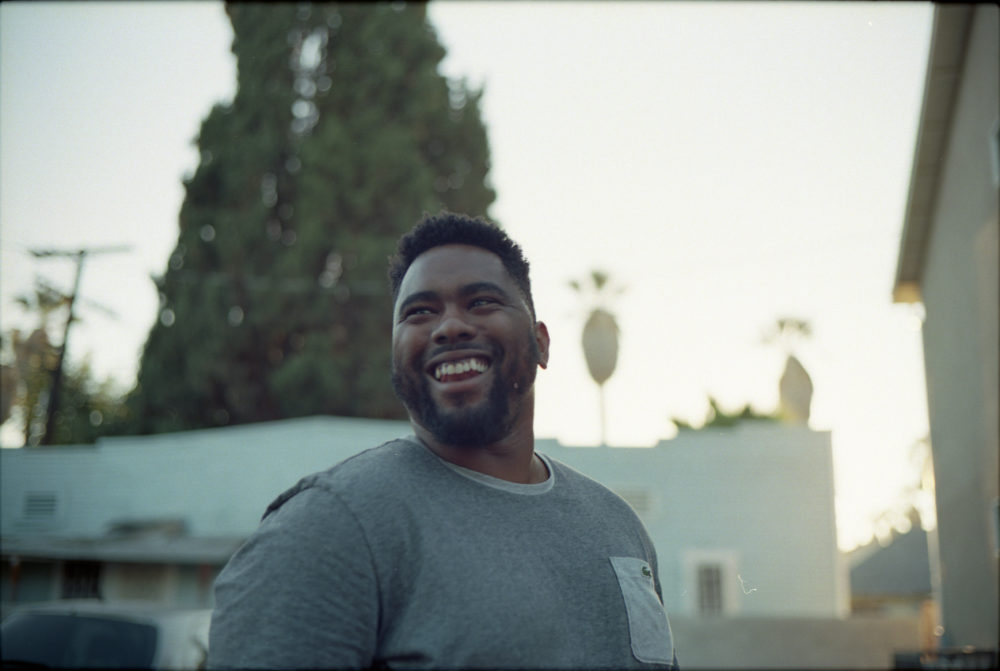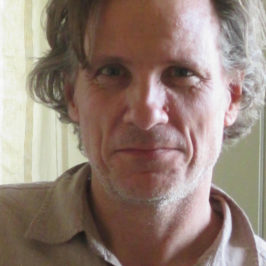Horror Noire: A History of Black Horror, directed by Xavier Burgin, is anything but the standard “10 Scariest Moments in Horror Films” type cable TV one-off. As a writer, educator, and producer of the documentary Tananarive Due says early in the film, “Black history is black horror.” Horror Noire is an exploration of the horror genre and its tropes as seen through the black lens.
This is Burgin’s first feature film, and it’s an impressive one at that; Horror Noire tells a complicated history deftly and draws out insightful and sincere commentary from a diverse cast, from bloggers to Oscar winners (Jordan Peele). I had the opportunity to talk with Burgin recently about the film—you’ll find his observations below, followed by links (and passwords) to his work.
How did Horror Noire come about?
Horror Noire began as a book of the same title, written by Dr. Robin R. Means Coleman. Then Ashlee Blackwell of Graveyard Shift Sisters partnered with Stage3 Productions to put together a pitch for making this idea into a feature documentary. Shudder picked it up after Jordan Peele won the Oscar for Get Out. It was around this time after Stage3 and Shudder partnered together that I was brought in as the director.
So for me, a lot was already built up coming into the project. The biggest part was showing the producing team, as well as Shudder, that I was the right person, with the right understanding of the movie to pull it off. But I want to make sure the producers who began it all are recognized for the gestation of the project. Not me.
The producers allowed me to hire my camera and sound team. From there, we shot six days in total, and once we finished production we went straight into editing. I oversaw the editing of Horror Noire, but since we were on a tight schedule, the producers had the final say on the cut, which worked, since we all had an understanding of the piece we were trying to make.
When you found out you got the gig, how did you feel?
I was excited. You’ve got to understand, this is something I’d been fighting for since I got out of USC film school in 2015. Point blank, it’s not easy being black and making a career in Hollywood, despite the gains that have been made. So it felt surreal when I heard back from Shudder and they told me I got the job. It felt like all the hard work I’d been doing up to that point had finally, truly, paid off. It was one of those things where I still sit back and think, “Is this truly, really happening for me now?” It felt great to know it 100% was.
Horror Noire features some big names in the genre. What was it like working with those actors and directors?
No one who came on set was a dick. I’ll say that upfront. I think that’s one of the great things about working with older, black celebrities. They know they’ve done their part. They know how important they are, but they also understand what it means to be in this industry as a black person with a hefty career, so they never go out of their way to be mean or terrible to anyone on set. Everyone was cordial and punctual and very respectful to my entire team. It is, by far, one of the best experiences I’ve ever had on a set.
Are things changing in Hollywood? Do you think black filmmakers are getting more opportunity to tell their stories?
At a snail’s pace. Black creators are still struggling to create in general, as well as in the realm of horror. We need more people in places of power actually believing in the necessity of our stories vs. giving us lip service. We can never go back to a time when black folks were erased in front of and behind the camera, but we’re still facing an uphill battle to tell our stories. Horror Noire sheds light on the problem and we end on a positive note.
Do you have any advice for emerging filmmakers interested in trying to make a feature?
I can only speak for myself. What helped is that I’d been making a name for myself with my short films and my presence on social media. So I think they thought, “Oh, this person is talented and he’s been highly recommended from people who know him and know about him.” So in essence, it truly was being a good person and knowing the right people who could vouch for me; that’s what got me where I am.
Who do you hope watches Horror Noire?
Personally, I want black people and horror fans watching Horror Noire. I want to see black folks checking it out for the historical implications. Black people have always been the foundation this nation was built on. We’ve always had our hand in everything that’s made in America. Film is no different. We contributed to the horror lexicon. Unfortunately, like many other events in this nation, black people’s contributions are erased. I want black Americans to know the horror genre is just as much ours as our counterparts.
I want horror fans, from the casual to the buff to the historian, to also realize black people have played a huge part in bringing horror where it is today. That can’t be denied, and if you love the genre, this is a documentary you need to see.
The film sheds light on the cinematic history of African-American tropes. Tell me about that?
Birth of a Nation, in my opinion, heavily mainstreamed many of the negative stereotypes attributed to black people in America, from blackface to the stereotypical lazy black person, to black men lusting after white women. Birth of a Nation helped codify those tropes in a big way. I believe we wouldn’t have the majority of the tropes discussed in the film if it weren’t for that film. In Horror Noire, we also bring up how the sci-fi horror films of the 50s used monsters as stand-ins for the fear of black people.
What will you take from this experience and apply to your next film?
First, I’ll be taking all the knowledge I learned about black people in horror and implement that into my own work. Second, I know that I’ll be doing my best to bring a black and brown crew into the fold as I did for this film. The entire camera team consisted of black and brown people.
What’s next for you?
I’m working on funding my feature, On Time. It’s based on my short film of the same name that was showcased on HBO and is currently on Issa Rae’s Color Creative. Giants, the digital series I worked on, was nominated for 11 Emmys, including Outstanding Directing. While I didn’t win in my category, the team snagged two Emmys. I’m working with Gunpowder & Sky on an afro-futuristic, animated show based on black, millennial Internet culture. I’m also writing a romantic comedy for Woody McClain, the star of The Bobby Brown Story on BET.
***

Xavier Burgin is an Emmy-nominated writer/director from USC’s School of Cinematic Arts. He’s a Sundance Fellow, HBO alumni, Ryan Murphy Half Fest alum, a semi-finalist for The Student Academy Awards, and a director for the Emmy nominated series, Giants.
Xavier’s work:
Horror Noire: A History of Black Horror – A Shudder/AMC Original Feature Documentary Film
On Time – A mother must make a difficult decision when she’s late for a job interview | HBO Short Film, SAG AFTRA Short Film Showcase, Issa Rae Presents #ShortFilmSundays
Olde E – A son takes revenge on his abusive father | Ryan Murphy Director’s Showcase, Student Academy Awards Semifinalist; PW: oldee
Other – A Short Film About Black America’s Two Voices | Featured on Shadow & Act, Bossip, & Colorlines/RaceFoward
Giants 204: Lights Out – A citywide blackout unexpectedly brings everyone together, strengthening some bonds and threatening others | Emmy Nominated Digital Series, coming to TV One/CleoTV
Giants 207: Okay In the Silence – Malachi returns home to Georgia in an attempt to get his life back on track | Emmy Nominated Series, One Hour Special, coming to TV One/CleoTV
A Black Twitter Date – Black Twitter tags along on a date | 1million+ views on Facebook
Mr. Hall’s Interview – A Film About Workplace Discrimination
Directing Reel: https://www.vimeo.com/xay/directingreel
For More Work: https://www.quethelights.com/director
